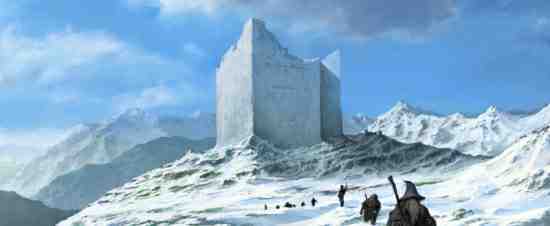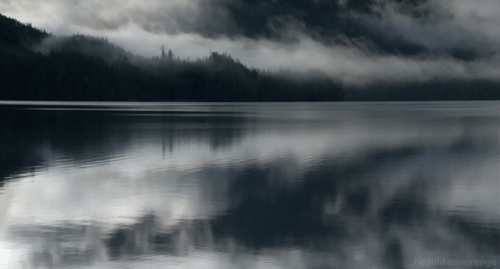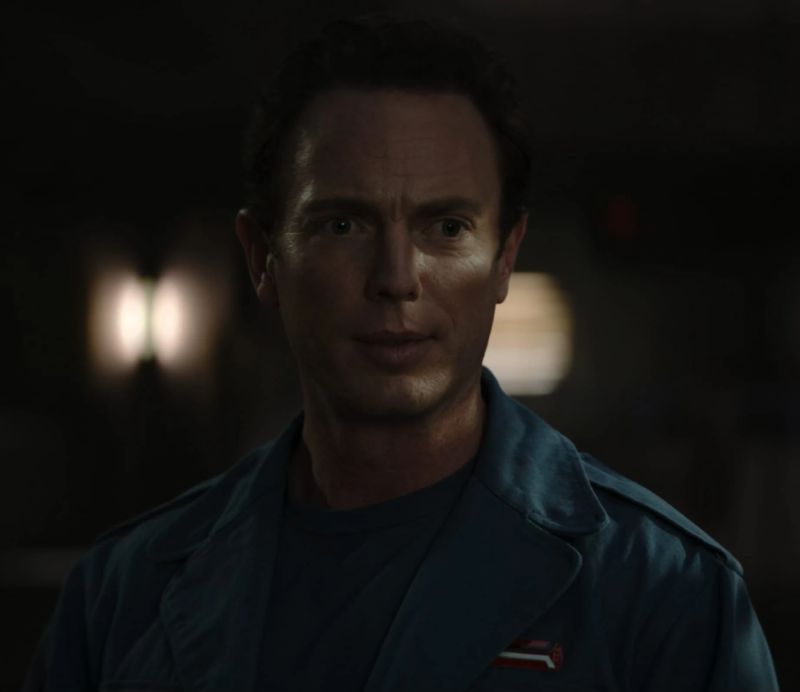| Site Stats: |
|
9975 Stats in 31 Categories |
| Search Stats: | |
|
| Latest Youtube Video: |
| Social Media: |
| Other Pages within RPGGamer.org: | |||
HIT THE ROAD, JACK

How many times have you said something similar to the following?
"The ambassador asks you to take the information you've found to her queen, the sea voyage takes 5 days and is uneventful."
or
"Haversford is 10 days away, and nothing happens on the way, so what do you now?"
or even
"The hyperspace journey takes a week, you arrive at Tattooine."
All right we all admit that some journeys in role-playing games will be uneventful, but this is a trap every Gamesmaster I know has fallen into at some time (myself more than others), and perhaps you can spot it in your own style. However although there is nothing wrong with just stating a journey has occurred it is a waste or perfectly good opportunities and journeys can be more eventful, or even adventures in themselves.
But it's all very well to spot a potential problem with your Gamesmastering style, its another thing altogether to deal with it, and I can only speak from my own learning experience.
The way I've discovered, from experimentation and watching other GM's is to break the journey up into smaller sections. Describe it day by day, with small things going on each day, which is a simple enough matter but what do you use to break up a journey. Well here is where I hope to help most by giving a few examples, some of these are applicable to all gaming situations, others require a considerable amount of changing to the situation to be used.
THE WEATHER
This is often underused in role-playing games, with rain falling as the players trudge down a muddy track, but none of the effects used. Rain makes the roads slippery meaning that the players will make poor progress, bridges may become washed out meaning that the players have to find alternate ways across. Long hot summers will mean that the players may have problems finding water, with rivers dried out.
Snow is especially useful in making a journey different, because it has so many side effects. Tracks are more obvious meaning unusual tracks can be spotted more easily drawing the players off into encounters with monsters. Heat becomes a problem; paranoid groups who do not light fires to avoid attracting attention will find themselves freezing. Thick warm clothing means that agile fighters will have problems dodging about in combat, and will find themselves much worse off if they lose or damage their clothing. Snow like rain means that adventurers may seek shelter during the night, and may encounter problems as caves and the such in fantasy games usually have unwelcoming inhabitants.
Also weather can be used to denote the passing of time, as the group travels they will see clear skies clouding over and building into storms as days pass, then once the storms are past they will see the damage caused, trees collapsed onto paths, bridges washed out, houses wrecked, all depending on the severity of the storm. At some times of the year, morning mists will cause visibility problems, as will rain or snow showers causing groups to wander into trouble without realising it.
In voyages by sea weather becomes less of a useful tool but can still have its uses, storms will cause ships to search for a cove or port to put into until it passes. Hot weather will cause terrible summer mists, and slippery frozen decks can be even more treacherous than slippery roads, as any fall is likely to be into the icy sea.
In space travel weather is of no use whatsoever, but effects similar can be emulated by solar storms which block sensors, or asteroid storms making it dangerous to approach a planet, solar winds pushing ships of course are another possibility amongst countless other fictional effects.
NON-PLAYER CHARACTERS
On any journey players are likely to encounter other people, in low-tech level games they will be sources of news and information about the local area, where monsters are and where bandits are likely to attack passing travellers. Even at sea or in space passing ships are likely to hail each other for news.
But NPC's also serve other uses in a journey, on ships or in caravans the other travellers will have their own lives which the players may find themselves caught up in, searching for lost children on a large ship may be an annoyance, but searching around a large area of land will cause even greater problems, and what kind of heroes would they be if they refuse to help. And as heroes they will find their companionship is much sought after on journeys through dangerous areas, and carts, ships and other travellers join a convoy with the heroes at the head even if they do not wish anyone with them, as people who would be making the journey anyway decide that its far better to make the journey accompanied by some tough adventurers.
Even if the players are travelling alone it does not stop people coming to them with problems, the farmer they ask for directions will upon spotting a cleric or medic may ask for help with his sick wife, likewise passing ships may ask for medical aid. Players may get invited to stay a night at a cottage, only to find the occupants are trying to marry off their daughter (or son, or even in the case of lone widows themselves) to the passing rich adventurers.
If the players are walking then they may be able to save their aching feet for a day or so on the back of a farmers wagon in exchange for conversation on a lonely trip. If on horses they may find a horse throwing a shoe meaning that they have to find a blacksmith, finding a blacksmith who has time to help them on a busy market day, or dragging him out of his warm bed on a cold and rainy winters night are both problems requiring diplomacy and usually lots of money.
INNS, TAVERNS AND COACHING INNS
Under this category you can also include ports and planets, any place the players stop over during a journey. Perhaps they just need to shelter for the night, refuel or repair their vehicles, or even just sleep in a comfortable bed for the night. Inns are a perfect place for things to happen and are almost just designed for murder mysteries, a group of travellers all drawn from different places and backgrounds.
Inns are also perfect places for political intrigue because of the variety of people using them, a prince or politician could be meeting co-conspirators while planning to overthrow the king, or possibly could be just meeting their mistress, an embarrassing fact that they wouldn't like to see the light of day. Messengers from neighbouring kingdoms could let slip a secret when they have had a drink or two too many. All of these while they could lead on to longer adventures and even campaigns, could simply be resolved in a single night, EG as the heroes protect the Prince (who is having a liaison with his true love, someone the King doesn't approve of), from being discovered. Something which while resolved in a night could earn them enough of a favour to be useful should they return this way.
Is SF games space stations are the coaching inns of their era, because even in Star Wars ships need to re-fuel and have to set down somewhere for repair. Abandoned space stations are as good a mystery as an abandoned inn, and in a SF game, the characters that could be met who are also travellers would be far more colourful than those in a fantasy game.
LANDMARKS, TOWNS AND BORDERS
As the heroes continue on their journeys, they will pass various landmarks, towns and through different countries, while many of these will be unremarkable, it adds variety to at least mention them. As they pass through a valley whose entrance is marked by ancient stone pillars topped by carvings of dragons, as they spend a night in Everson a town whose whitewashed buildings look clean and well cared for, or as they get watched by knights guarding the river that marks the entrance to Grenstein, a kingdom whose war with its neighbours looks set to erupt once more after only a couple of years of peace.
Landmarks can be of a wide variety of different types, from ancient stone circles, the ruins of abandoned dwarven settlements, the mountain where a famous dragon was known to have nested, to simply a turreted castle in the distance. All of these are irrelevant to the current journey, but a few moments thought gives them a short history of their own, and adds to the feeling that the players are in a world, which does not necessarily revolve around them.
The only problem with these are if the players take them to be plotlines that they should explore, but again with a short think these can be shown to be dead ends fairly quickly. EG an exploration of the stone circle doesn't find anything except the remains of a campfire some weeks old, the dwarven settlement has only a single wolf as its current inhabitant, the dragons mountain has been taken over by some orcs, and the castle is the home of Baron Von Giderberg who isn't home at the moment. While fleshing out the encounters, these remain only colour in the story of their journey.
Borders can become problems to be resolved if they are closed, or there are customs checkpoints on them, a country in danger of war with its neighbours may not want armed "mercenaries" crossing into their neighbour to reinforce it. Another country may not want any meat brought over its border if the heroes are travelling from a country infected by a cattle disease, and wars or even political disputes can close the border completely, meaning the players have to find an alternative route, or find a way to smuggle themselves over the border.
While towns may decorate the journey by their particular look, whether it be a poor village mainly filled with rough stone hovels, or a rich market town with many pillared buildings and marble sculptures, the rules, regulations and customs of a town may make it more memorable. A town that has had problems with wizards may have glyphs marked over its gates which set off alarms should a wizard enter the town. Another may have had problems with thugs and have a ban on the open carrying of weapons, taxes on weapons could also be commonplace throughout a region, just think how much players would be annoyed by a 2gp per carried weapon tax throughout a kingdom (even though it wouldn't likely be a real financial burden on most adventurers). Peace bonding of swords could be customary throughout an entire region (peace bonding is when swords are tied into their scabbards with string or ribbon making it much harder to draw them quickly), but would make players nervous knowing that they couldn't leap into combat straight away, having to untie their weapons first.
Although again SF games tend to avoid the majority of these, but nebulas, black holes and the like may make for scenery and landmarks, and borders with customs control may still exist, and cause problems with the average over armed player character ship.
RANDOM ENCOUNTERS
Although planning journeys can make them more memorable, random encounter tables can still be useful and make for memorable journeys with only a minimum of effort and thought on the Gamesmasters part. Rolling up an encounter with an orc, may not necessarily mean combat, perhaps he is a lone hunter and seeing he is outnumbered offers to share his game with the players, perhaps its a child, adopted by some local villagers after their own was killed in an orc raid. A random roll for a band of orcs, could be scouting party for a roving warband, or the families and children of the warband who are elsewhere.
With only seconds of thought a simple random encounter changes from fighting a couple of orcs into something larger, however never underestimate the players love of beating things up, so sometimes the orcs will just be orcs who charge and attack, letting the players get some much needed violence out of their systems.
END
Well I hope this has been of at least a little help or interest to you, I know that fleshing out journeys has become something I can fill many game sessions with, now all I have to do is improve the rest of my GM`ing style. . . .
Page designed in Notepad, logo`s done on Personal Paint on the Amiga.
Text completely by FreddyB.
Images stolen from various web pages I`ve now forgotten where (Copyright resides with the artist).
Any complaints, writs for copyright abuse, etc should be addressed to the Webmaster FreddyB.










